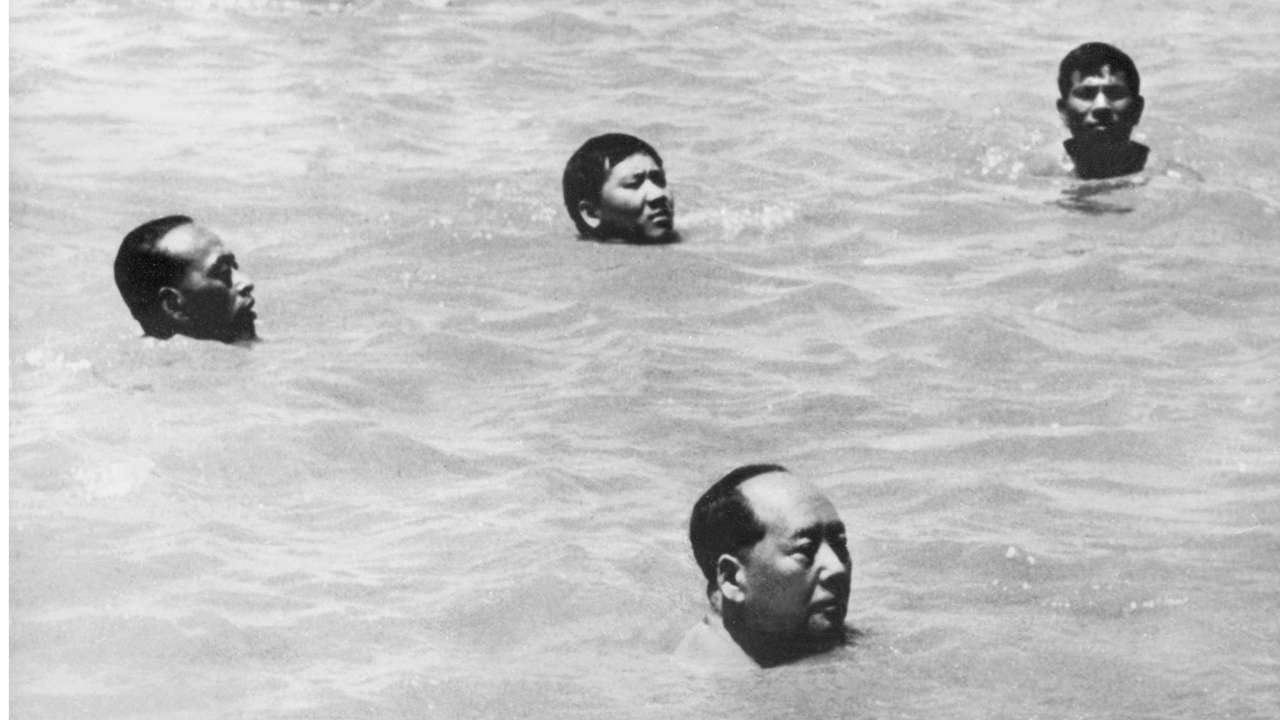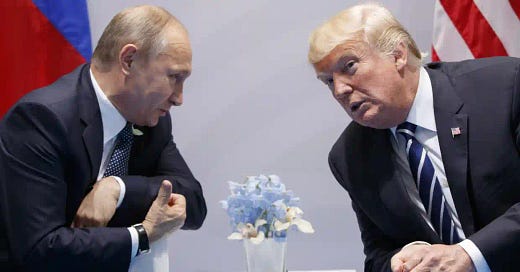Trump and Russia, China and COVID and the Next Rough Draft of History
How the Times’ disclosure of a “garbled echo” should help spur us to easier revisionism of our own work
Welcome to Second Rough Draft, a newsletter about journalism in our time, how it (often its business) is evolving, and the challenges it faces.
This newsletter is called Second Rough Draft because I have always been fascinated by the interplay between news and history, and the line that separates them. (Click here to see the origins of the observation that news is the “first rough draft” of history.)
One of the trickiest aspects of this relationship is when history as we understand it needs revising. In the academy, this is often a generational issue, as a later cohort comes to see how previous scholars misunderstood events, or framed them imperfectly. In journalism, and especially when the history involved is very recent, the problem can be compounded by the fact that no new generation has yet arisen to correct a narrative that has been—as it turns out, unwisely—accepted. I think we may be seeing that phenomenon unspool right now with respect to critical stories involving Russia (and Trump) and China (and COVID).
Two new stories
Last week brought two remarkable stories relating to the investigations undertaken, beginning in 2016, about the relationship between Donald Trump and Putin’s Russia. Trump repeatedly insists that the upshot of these investigations is that there was “NO COLLUSION” between his campaign and Putin’s web. Like so much else that Trump says and has said, that is untrue.
The Mueller report in 2019 identified a meeting between Trump’s son, son-in-law and campaign manager and a Russian national to discuss Putin’s possible help to Trump in the campaign, as well as numerous links between the Trump campaign and the Wikileaks publication of documents the Russians had hacked. Roger Stone was convicted of obstruction of this inquiry—felonies for which Trump later pardoned him. Trump deputy campaign manager Rick Gates pleaded guilty to obstruction in the same matter; presumably because he cooperated with American law enforcement he got no such pardon. Trump’s first national security adviser agreed to plead guilty to the crime of lying to the FBI about contacts with the Russians during the presidential transition of 2016-17, although he changed his mind two years later; he was also pardoned by Trump. It is true, however, that Mueller declined to charge Trump, which Attorney General William Barr, then still a Trump loyalist, mendaciously spun as some sort of exoneration. That much we have known for years.
But last week we learned that the head of counter-intelligence in the FBI office that led the 2016 “Crossfire Hurricane” investigation, who had previously been in charge of coordinating FBI cyber counterintelligence nationally, allegedly (and illegally) took a lot of money from a Russian oligarch and Putin crony who had employed Trump’s one-time campaign manager. (This Twitter thread from Yale scholar Timothy Snyder, author of important books on Russia and Ukraine and more recently On Tyranny, ties things together nicely.)
Trump didn’t just lie about the findings of the Russia investigation, he insisted that it had been conducted illegally. Barr accommodated him, and encouraged this belief, in naming a special prosecutor, John Durham, who, after years of inquiry found no significant misconduct by prosecutors. Durham also seems to have failed to find the rogue FBI agent indicted last week—that charge was brought by the regular staff of the Department of Justice.
In the sixth graf, news of a “garbled echo”
Here is where we come back to the press, and the next rough draft of history. Also last week, in its retrospective on the Durham fiasco, the New York Times revealed that in 2019 Durham conducted a criminal inquiry of what it called “suspicious financial dealings related to Mr. Trump” and a “credible” tip from Italian authorities “linking Mr. Trump to certain suspected financial crimes.” The Times story then reports, presumably ruefully, that a story of its own at this time advanced what it calls a “garbled echo” of this criminal inquiry: that the investigation involved possible crime not by Trump, but at DOJ itself. Other news outlets claimed to have confirmed this bogus story, and repeated it.
First, kudos to the Times for acknowledging this mess, and making it public, although it’s worth noting that the possibility of new crimes by Trump only made the story’s sixth paragraph. And let’s hope the rogue FBI agent wasn’t one of the sources misleading the Times.
But there’s a larger issue here. I think many Washington reporters and editors, while reporting all of the facts above, largely accepted Barr’s conclusion that the Trump-Russia story had been overblown in 2017-18, and that the conventional wisdom remains stuck there to this day. (For a lengthy counter-argument, see this week’s piece by my former ProPublica colleague Jeff Gerth in the Columbia Journalism Review. It does not mention the rogue FBI agent or the Durham criminal investigation of Trump.)
A big problem exists when the need for intra-generational revisionism arises, in light of new facts like the rogue agent and Durham’s probe of Trump. The Times says it has been able to learn almost nothing about what happened in that investigation. I can’t see any reason why any reasonable person would simply trust that it was appropriately concluded by Barr and Durham without any charges against Trump.
We are, after all, with Trump talking about a man Barr later decided was trying to overthrow the government based on “bullshit” while “detached from reality” (although Barr failed to share that with the American people while Trump still held the presidency), who is already the subject of two criminal investigations by a special federal prosecutor in Washington and by state prosecutors in Georgia and New York, and whose company was recently convicted of 17 felonies, many while he was CEO.
More broadly, we simply need to lean harder against the temptation to continue to accept our own previous judgments of past events on which new light is shed. Sometimes sources mislead us. Sometimes new facts emerge. Just because we reported a story in good faith one way in the past doesn’t mean we can’t turn out to have been wrong. We all need to be much more open to that possibility.
China, too
Recent developments in China powerfully underline this lesson. With the collapse of Xi Jinping’s draconian “zero COVID” strategy, there have been reports from the Chinese CDC that there have now been a billion Chinese COVID cases. In a country with 1.4 billion people, less effective vaccines and poor access to therapeutics especially in outlying areas, that’s an easy number to believe. But hardly anyone in journalism seems to have wrapped their heads around the implications.

The official Chinese death toll during the pandemic, since its beginnings in Wuhan, was for a long time ludicrously said to be under 6000, a bit fewer than Latvia. Two weeks ago it was placed at closer to 80,000, not far ahead of Japan, which has a population well less than one-tenth of China. Even if we make the very generous assumption that the case fatality rate in China is among the lowest in the world, at two tenths of one percent of cases, a billion cases would translate into two million deaths. If that number surprises you, it’s because almost no news reports have mentioned it. (The US, for comparison, with about one quarter of China’s population, has had 1.1 million COVID deaths.)
China is a largely closed society, especially outside major cities on its east coast, with an authoritarian government that has a consistent historical record of misrepresenting all sorts of basic facts about what is happening in the country. (If you’re interested, the recent book China After Mao by Frank Dikotter is something of a primer, as well as an excellent read.) Especially in such circumstances, we need to be constantly on guard, willing to revise what we think we know about what is happening and has happened there.
With Russia and China, but not only there, while journalism can be said to be the first rough draft of history, it also needs to be willing and able to undertake a second rough draft. And a third.
Second Rough Draft (the newsletter) will likely take next week off. See you later this month.




The Twitter thread of Timothy Snyder you referenced was well worth reading. And Trump’s long long long relationship with oligarchs parking money in Manhattan real estate really rounds out the story. The problem? For ordinary citizens, too many dots to connect, too easy to dismiss as “just politics”.
As for China and COVID deaths? No, it's almost certainly well above 2 million. It was probably at the 2 million mark nearly 9 months ago: https://socraticgadfly.blogspot.com/2022/06/coronavirus-week-112a-blame-xi-jinping.html